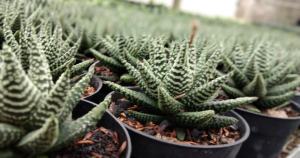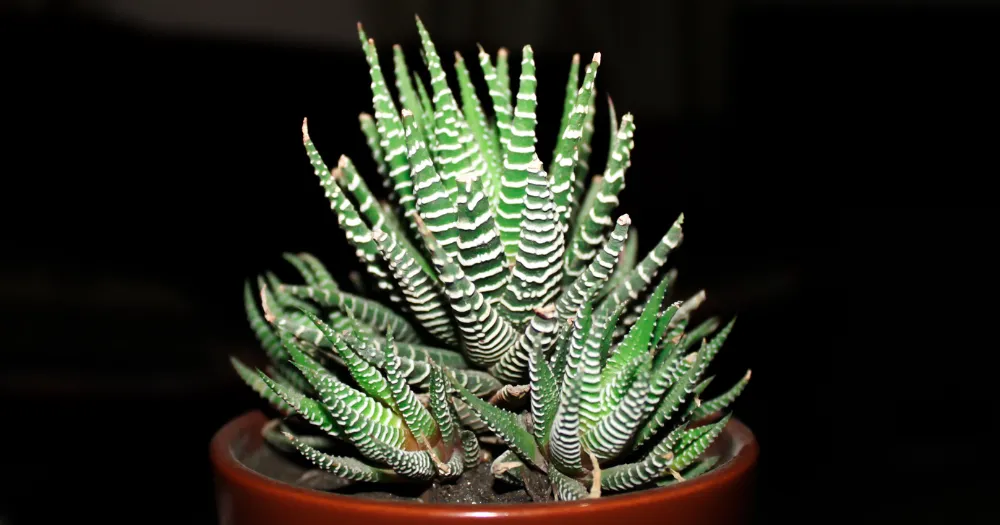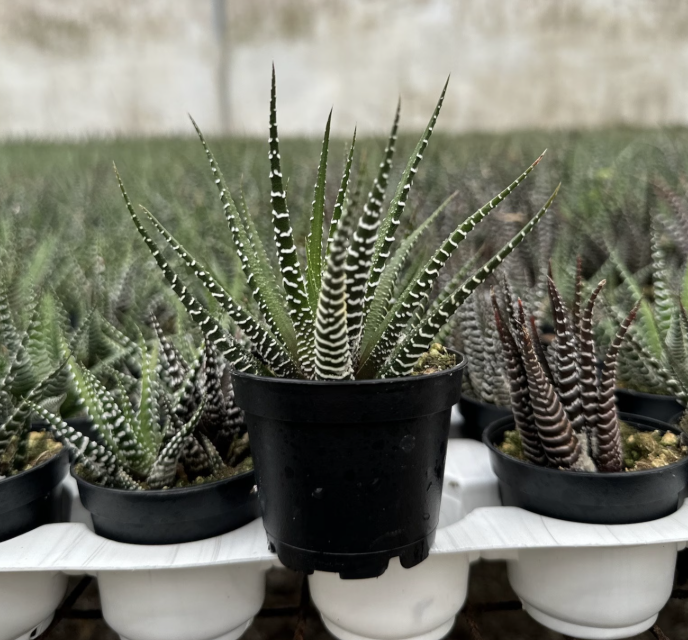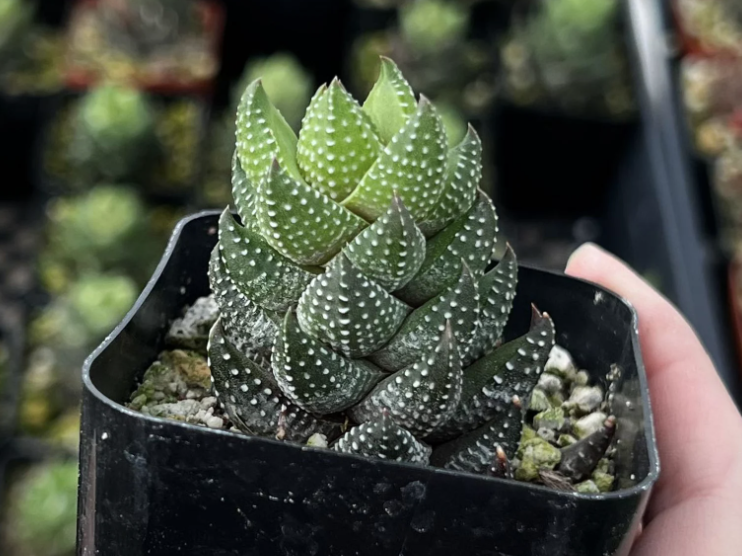Propagating succulents from leaves is a rewarding way to expand your collection, but not all species follow the same rules. While Echeveria leaves root easily, Haworthia propagation requires different techniques—and often more patience.

Dig in!
Why Propagating Haworthia Leaves is Different
1. Leaf Structure Matters
- Echeveria leaves detach cleanly from the stem and contain abundant meristematic tissue (where new roots/pups form).
- Haworthia leaves are thicker, fleshier, and often break unevenly, reducing success rates.
2. Rooting Speed Varies
- Echeveria: Roots in 1-3 weeks, pups in 4-8 weeks.
- Haworthia: Can take months to root, and pups may appear only after 6-12 months.
3. Preferred Propagation Methods
Haworthia are more reliably propagated via:
- Offsets (pups) – Separate from the mother plant.
- Leaf cuttings – Possible but lower success rates.
Step-by-Step: Propagating Haworthia Leaves
Materials Needed
- Healthy Haworthia plant
- Sharp, sterile knife or scissors
- Well-draining soil (e.g., 50% cactus mix + 50% perlite)
- Shallow tray or pot
- Spray bottle
Step 1: Select the Right Leaves
- Choose plump, healthy leaves from the lower part of the plant.
- Avoid young, small leaves—they lack stored energy for rooting.
Step 2: Remove the Leaf Correctly
- Gently wiggle the leaf side-to-side until it snaps off.
- OR use a sterile knife to make a clean cut near the base.
- Ensure the leaf has a clean break—no ragged edges.
Step 3: Let the Leaf Callus
- Place the leaf in a dry, shaded spot for 3-7 days until the cut end forms a hard callus.
- Why? Prevents rot when planted.
Step 4: Plant the Leaf
- Lay the callused leaf on top of dry soil (do not bury).
- Mist lightly only when the soil is completely dry (overwatering = rot).
Step 5: Wait for Roots and Pups
- Roots may appear in 4-12 weeks.
- Pups can take 6+ months—be patient!
Step 6: Transplant the New Plant
- Once the pup is 1-2 inches wide, gently separate it and plant in its own pot.

Why Your Haworthia Leaves Might Fail
❌ Using unhealthy or damaged leaves (choose firm, undamaged ones).
❌ Watering too soon (wait for roots before increasing moisture).
❌ Too much sun (keep in bright, indirect light).
❌ Giving up too early (Haworthia propagates slower than Echeveria).

Haworthia vs. Echeveria Propagation: Key Differences
| Factor | Haworthia | Echeveria |
|---|---|---|
| Leaf Removal | Harder to detach cleanly | Pops off easily |
| Rooting Time | 1-6 months | 1-3 weeks |
| Pup Formation | Super Rare, slow (6+ months) | Common, fast (4-8 weeks) |
| Success Rate | ~30-50% | ~70-90% |
Alternative Haworthia Propagation Methods
For faster results, try these instead:
1. Offsets (Pups)
- Gently separate baby plants from the mother and repot.
2. Stem Cuttings
- If your Haworthia has a tall stem, cut and replant the top.
3. Water Propagation
- Suspend a callused leaf over water (not submerged) to encourage roots.

Final Thoughts
While propagating Haworthia leaves is possible, it’s far far less reliable than Echeveria. For best results, use healthy leaves, be patient, and consider offset division for quicker success.
